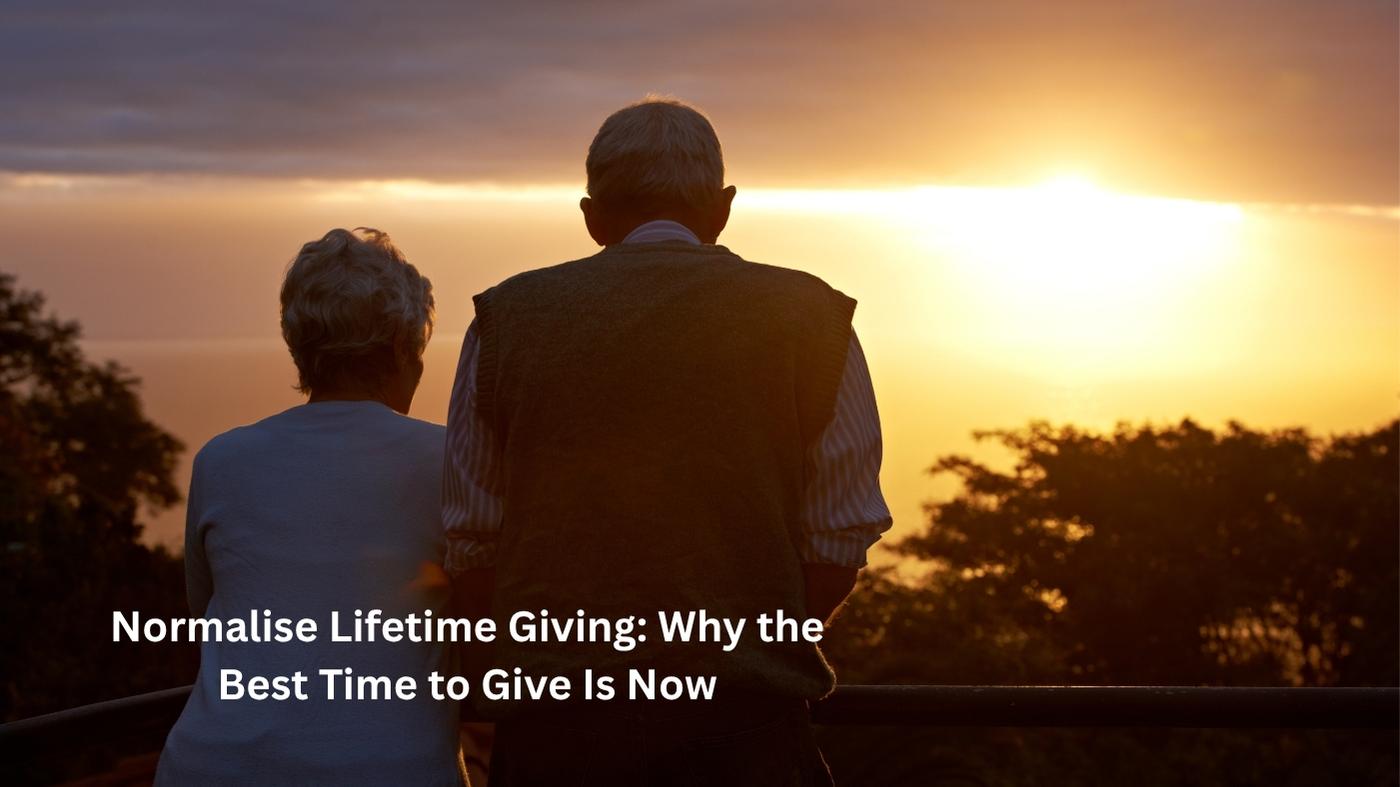Introduction: Giving Isn’t Just for the Rich—or the Dead
In India and around the world, charitable giving is often viewed as a grand gesture made at life’s end—a will, a large trust, or a foundation established in one’s name. But what if we reimagined giving as something to embrace during life, not after it?
Lifetime giving is the practice of sharing your resources—money, time, skills—while you’re still around to witness the impact. Whether you’re supporting a cause, empowering a family member, or funding a child’s education, giving in your lifetime can be more rewarding, more strategic, and more effective.
It’s not about how much you give. It’s about when, how, and why.
Why Lifetime Giving Makes Sense
1. You See the Impact Yourself
There’s a unique joy in watching your help transform someone’s life—seeing a student you sponsor graduate, a family member start a business, or a charity thrive with your support.
2. It Creates a Ripple Effect
Your giving becomes an example. Children, employees, or community members who see you giving are more likely to give themselves. It builds a culture of contribution.
3. You Can Give Strategically
Giving during your life allows for better tax planning, asset management, and cause alignment. You can structure your support as scholarships, recurring donations, or even social investments.
4. It Strengthens Relationships
Helping loved ones when they need it—such as during a medical emergency, a home loan, or higher education—fosters a deeper connection. Giving after you’re gone may help, but it doesn’t build relationships.
5. Avoids Complicated Estates
Lifetime gifts reduce the complexities and disputes that can arise during inheritance distribution. You give, intentionally, and with proper documentation.
The Emotional Power of Giving
- Fulfilment: Studies show that giving activates reward centres in the brain. It makes us feel good, reduces stress, and improves life satisfaction.
- Purpose: Many people, especially in later years, struggle with “what now?” Giving provides direction.
- Legacy in Action: Instead of leaving behind a legacy, you live one while you’re here.
Common Excuses That Stop Lifetime Giving
| Excuse | Why It’s Flawed |
| “I’ll give when I have more.” | Start small. ₹500 or ₹5,000 can still have a significant impact. |
| “What if I need the money later?” | Proper planning strikes a balance between two goals: security and generosity. |
| “They won’t value it if it’s not inherited.” | Giving with involvement, expectations, and mentoring ensures value. |
| “Charity begins at home.” | True—but it doesn’t need to end there. |
Who Can You Give to During Your Life?
- Family: Support for education, marriage, health, or entrepreneurship.
- Causes: NGOs, schools, hospitals, environmental protection, and women’s empowerment.
- Communities: Local temple, library, orphanage, village development.
- Employees or Staff: Education, housing, health insurance, and emergencies.
- Self-Help Groups or Entrepreneurs: Seed funding or mentorship.
Forms of Lifetime Giving (Beyond Money)
- Time: Volunteer regularly.
- Skills: Mentor, teach, guide.
- Networks: Connect people to opportunities.
- Belief: Encourage someone’s dream.
How to Start Lifetime Giving
✅ Start Small and Stay Consistent
Set aside a fixed percentage of your income—even 1%—and increase it annually.
✅ Involve the Family
Discuss your values and involve your children in decisions. Let giving become a shared tradition.
✅ Align with Causes Close to Your Heart
Are you passionate about education, animals, or sustainability? Choose something you care about deeply.
✅ Use Financial Tools
Set up recurring donations, create a giving budget, or utilise donor-advised funds (DAFs) if you have a large capital base.
Real-Life Example: The Quiet Giver
Mr. Suresh, a retired school principal from Gujarat, began donating ₹2,000 a month to a rural girls’ school. Over the past decade, his steady support has funded books, toilets, and teachers. He visited once a year and received handmade cards from students. His giving wasn’t flashy, but it was significant to him and the lives he touched.
Tax Benefits of Lifetime Giving in India
- Donations to registered charitable trusts under Section 80G can earn deductions of up to 50%–100% of the amount donated.
- Gifts to family (within limits) are not taxable if made with documentation.
- Strategic gifting can also reduce estate tax planning in specific scenarios.
Consult a chartered accountant (CA) or financial advisor for structuring your giving plan.
Final Thoughts: Give While Your Hands Are Warm
There’s a powerful Indian proverb that says:
“Give with warm hands, not cold ones.”
The warmth is not just in the hands, but in your presence, your participation, your encouragement. In giving during your life, you offer more than wealth—you offer hope, mentorship, belief, and love.
So normalise it. Budget for it. Talk about it at the dinner table.
Whether you’re 30 or 70, the time to give is now.
📘 Further Reading: The Case for Lifetime Giving
- What Billionaires and Their Advisers Say Keeps Them from Giving More and Faster
Associated Press explores psychological and strategic barriers to giving during life. - The Benefits of Giving During Your Lifetime
Forbes & Northwestern Mutual – on personal satisfaction, tax efficiency, and impact. - Giving While Living: Not Just for Billionaires
Atlantic Insights argues why early giving matters, even for middle-class families. - Turning Passion Into Action: Giving While Living
Atlantic Philanthropies – the legacy of Chuck Feeney and others who gave it all away during their lives. - Giving While Living – A Smarter Way to Make a Difference
Fidelity Charitable – tips on maximising impact and engaging family through early giving.
Disclaimer: The information provided in this blog is for educational and informational purposes only and should not be considered as financial, investment, or tax advice. While every effort has been made to ensure accuracy, readers must consult a qualified financial advisor before making investment decisions. VSJ FinMart is an AMFI-registered mutual fund distributor (MFD) that does not provide investment advisory services. Mutual fund investments are subject to market risks; please read all scheme-related documents carefully before investing.

